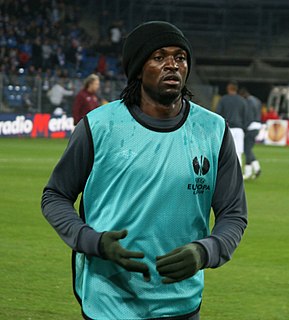A Quote by J. K. Rowling
I always advise children who ask me for tips on being a writer to read as much as they possibly can. Jane Austen gave a young friend the same advice, so I'm in good company there.
Related Quotes
I am a Jane Austenite, and therefore slightly imbecile about Jane Austen. My fatuous expression, and airs of personal immunity-how ill they sit on the face, say,of a Stevensonian! But Jane Austen is so different. She is my favourite author! I read and reread, the mouth open and the mind closed. Shut up in measureless content, I greet her by the name of most kind hostess, while criticism slumbers.
It's not possible to advise a young writer because every young writer is so different. You might say, "Read," but a writer can read too much and be paralyzed. Or, "Don't read, don't think, just write," and the result could be a mountain of drivel. If you're going to be a writer you'll probably take a lot of wrong turns and then one day just end up writing something you have to write, then getting it better and better just because you want it to be better, and even when you get old and think, "There must be something else people do," you won't be able to quit.
The fame thing is interesting because I never wanted to be famous, and I never dreamt I would be famous. You know, my fantasy of being a famous writer, and again there's a slight disconnect with reality which happens a lot with me. I imagined being a famous writer would be like being like Jane Austen.
And I love Jane Austen's use of language too--the way she takes her time to develop a phrase and gives it room to grow, so that these clever, complex statements form slowly and then bloom in my mind. Beethoven does the same thing with his cadence and phrasing and structure. It's a fact: Jane Austen is musical. And so's Yeats. And Wordsworth. All the great writers are musical.
Here was a woman about the year 1800 writing without hate, without bitterness, without fear, without protest, without preaching. That was how Shakespeare wrote, I thought, looking at Antony and Cleopatra; and when people compare Shakespeare and Jane Austen, they may mean that the minds of both had consumed all impediments; and for that reason we do not know Jane Austen and we do not know Shakespeare, and for that reason Jane Austen pervades every word that she wrote, and so does Shakespeare.































